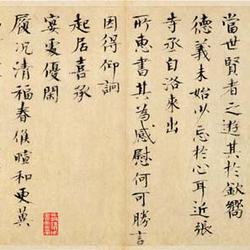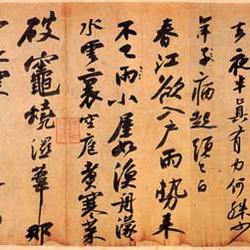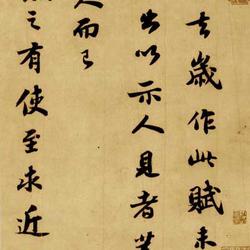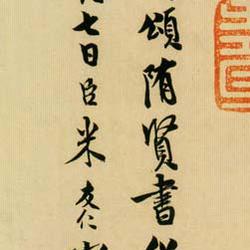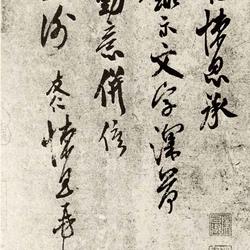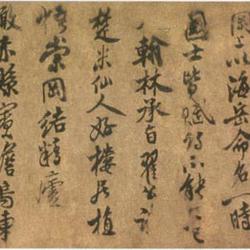Ouyang Xiu (1007-1072) was born in Luling (now Ji'an, Jiangxi). In the eighth year of Tiansheng's reign (1030), Emperor Renzong of the Song Dynasty was promoted to Jinshi, and he was promoted to Zhizhigao and Hanlin bachelors. During the reign of Emperor Yingzong, he was promoted to deputy envoy to the privy council and participated in political affairs. During the Shenzong Dynasty, he moved to the Ministry of War to serve as the Minister of War and served as the prince's young master. His posthumous title was Wenzhong.
He advocated innovation in both politics and literature. He was not only a supporter of Fan Zhongyan's Qingli New Deal, but also a leader of the poetry innovation movement in the Northern Song Dynasty. He was one of the Eight Great Masters of the Tang and Song Dynasties. He was good at studying ancient times and was fond of learning. He was well versed in many books. His poems and essays were the best of Li Bai, Du Fu and Han Yu. His articles were famous all over the world. Since the end of the Tang Dynasty and the Five Dynasties, people have generally advocated a writing style that is empty in content, flashy in style, eccentric and difficult. He embarked on the innovation of writing style, emphasizing the content of the article over the form, and opposed the superficial and empty content. Write plainly and plainly, and establish an article style that is easy, smooth, and tortuous. With the strong support of Mei Yaochen, Su Shunqing, Su Shi, Zeng Gong, Wang Anshi and others, the ancient prose reform movement gradually unfolded and achieved vigorous development. In terms of simplicity, his poetic style and writing style were also quite consistent, and he often used prose as poetry. , but the creation of poetry is not as good as his articles. Ou Shi is also good at writing lyrics. He has written a large number of lyrics and has achieved considerable achievements. Expressing romantic and romantic sentiments, they are generally written in clear, bright and affectionate language. In terms of literary criticism, "June 1 Poetry Talk" created a new genre of "Poetry Talk" and provided a simple and flexible form for the development of later poetry theories. His creative achievements are also impressive, and his poems, lyrics, and prose are all top-notch at the moment. He was also pleased to reward the younger ones, and Su Shi and his son, Zeng Gong and Wang Anshi all came out of his sect.
Ou Shi wrote "New History of the Five Dynasties", "Records of Guitian", "Collection of Sixty-One Laymen", and compiled "New Book of Tang" with Song Qi and others. He has read everything about epigraphy and stone inscriptions in the world, so as to appreciate them. From the Zhou and Han dynasties, he has broken down fragments of epigraphy and stone inscriptions, picked up similarities and differences, and compiled them into ten volumes of "Ji Gu Lu". He is a pioneer in creating epigraphy. He likes to discuss ancient and modern books, including "On the Books of the Southern and Northern Dynasties", "On the Immortal Seal Script", "61 Inscriptions and Postscripts", "Collection of Ancient Records and Postscripts", etc. Later generations compiled his poems and essays into "Collection of Ouyang Wenzhong Gong".

